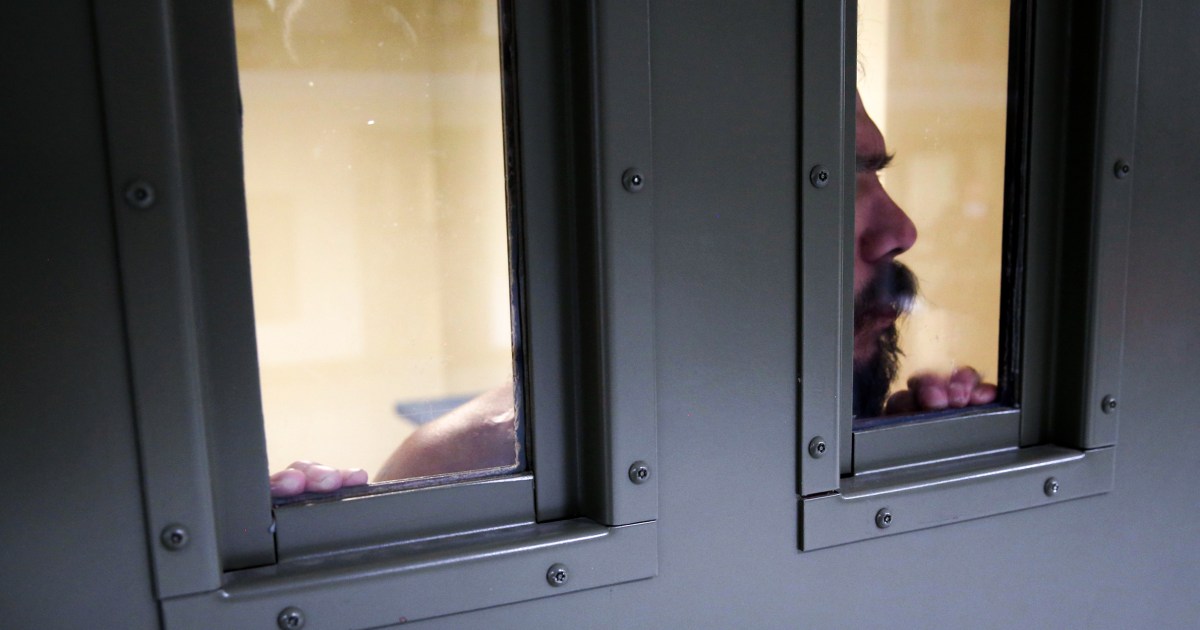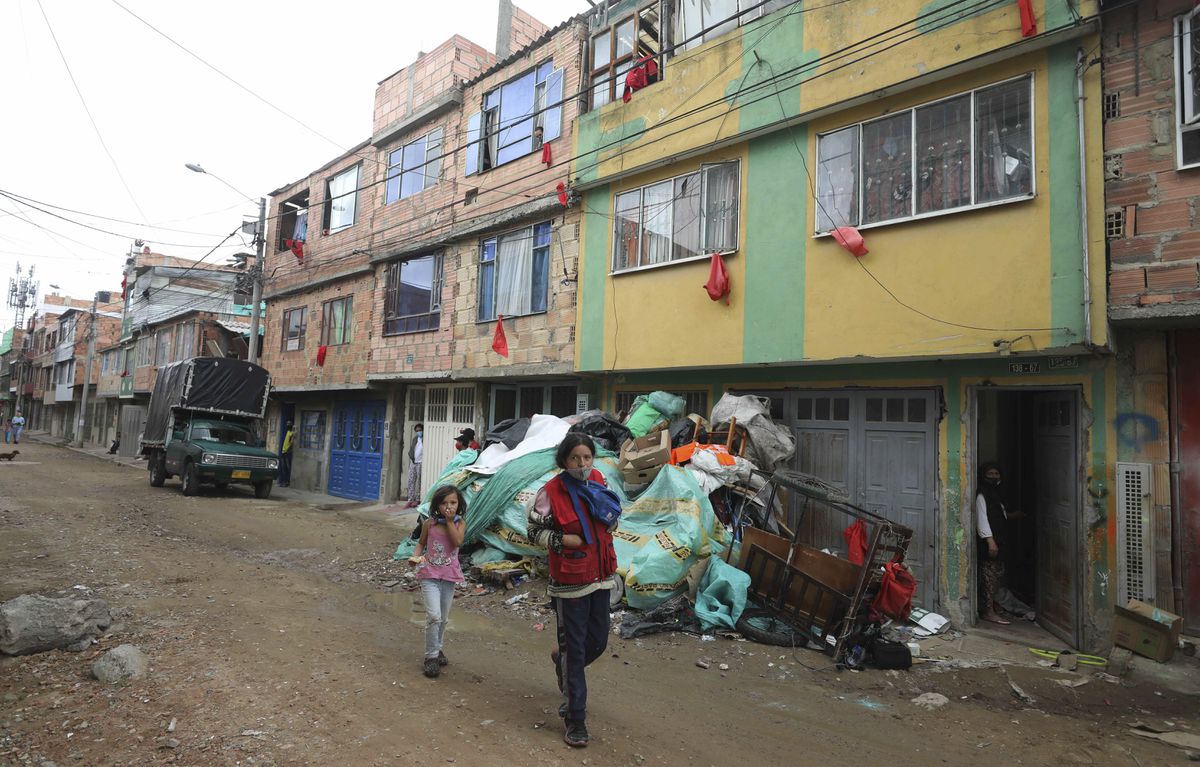How is confinement lived in Shanghai?
This is how a CNN reporter relates it 3:10
(CNN) --
When my father, a 73-year-old man, expressed concern about his food supply shrinking late last week, the catastrophe caused by the city of Shanghai's COVID-19 lockdown suddenly came home.
“It will be over in a few days if there is no help from the government soon,” Dad told me in a message on Thursday.
Then, as if anticipating my inevitable concern, he added, "I still have some rice and crackers, and plenty of coffee, though."
It was a startling revelation of the grim reality in China's largest city and financial center, from a member of the generation that lived through the Great Famine and the tumultuous Cultural Revolution that killed millions during the first decades of the People's Republic, founded in 1949 by the communist revolutionary Mao Zedong.
Even during the darkest days in Mao's China, my parents, born and raised in Shanghai, used to remind me that, unlike many in the countryside, they were lucky not to fear the prospect of starvation.
advertising
Now, with the increasingly draconian lockdown measures, a previously almost unthinkable issue has struck a chord with residents of the city and beyond more than anything else: people are going hungry in Shanghai in 2022.
By the authorities' own admission, the food shortage has been largely a man-made disaster due to a lack of planning and coordination.
Despite official promises, government donations have been unreliable in many parts of the city, including my father's apartment complex in northeast Shanghai, full of retirees like him.
Most of the elderly had failed to secure supplies through online bulk purchases, pretty much the only way to buy anything in Shanghai at the moment, due to its relatively small demand and lack of technological know-how.
Shanghai reports the first official figures of deaths from covid-19 after weeks of confinement
Workers in hazmat suits guard a street during Shanghai's lockdown on April 16.
Difficulty finding food amid Shanghai lockdown
I set out to help, but I never thought shopping for groceries online would be such a roller coaster of emotions.
Armed with a membership to a retail warehouse club, presumably allowing me to face less stiff competition than those using an online general grocery store, I quickly found it impossible to grab one of the coveted delivery slots, which are allocated at 9 p.m. every day, even with food still available on virtual shelves.
For days, the retailer's app would simply crash every night, only coming back online a few hours later with a dazzling "no more delivery space for the day" message.
As frustration and anxiety mounted, my hope dwindled along with my father's supply.
On day 2 of my futile attempts, a friend tipped me off about a "boutique" online retailer that was still offering a grocery package with overnight delivery slots.
Elated to discover that he was right, I immediately ordered my father.
However, when I broke the good news in the online family group chat, uncles and aunts, all facing their own food shortages to varying degrees, jumped in to express their surprise that I paid 398 yuan (about US$62) for five kilograms of vegetables and 60 eggs.
"It's a theft!"
shouted an uncle, while an aunt remarked that the price was more than four times what she would normally pay for the same amount of food at the market.
"But these are boutique eggs," my dad said blankly.
I was relieved that my father's refrigerator was restocked on time, but listening to my relatives' comments, I felt a sense of "survivor's guilt": What about the countless residents who can't afford exorbitantly priced food? ?
Three reasons why the Shanghai lockdown matters for the global economy
Workers in hazmat suits transfer daily supplies of food and necessities for local residents during the covid-19 lockdown in Shanghai.
An indefinite lockdown in Shanghai
Literal survival was not a concern for most of Shanghai's 25 million residents before April.
Over the past two years, the city has strengthened its status as the most important international gateway to China for both people and goods.
He prided himself on his more targeted and lenient approach to covid-19 containment, despite Beijing's strict covid-zero policy.
With Shanghai eschewing citywide mass testing and adopting less restrictive quarantine rules, it once seemed like a potential role model for the entire country as the rest of the world had largely chosen to live with covid with an emphasis on vaccination. .
Then came the omicron variant, with the highly contagious variant of covid sweeping through the city and infecting more than 390,000 residents since March, according to government statistics.
After repeatedly denying that the city would be placed on lockdown — police even announced an investigation into suspected online rumor mongers — Shanghai authorities abruptly changed course in late March, ordering the entire metropolis to be shut down. early April.
The government initially announced it as a four-day "temporary pause," saying it would quickly test the entire population, isolate positive cases, and then reopen the city.
As a result, many residents never bothered to stock up.
Despite widespread panic buying before the closing, my father was among the unfazed.
A retired electrical engineer who enjoys travel, photography, and coffee, he had recently injured his back muscles and wasn't going anywhere anyway.
Still, her confinement at home turned out to be much longer, and more precarious, than she ever imagined.
China accuses the US of using the confinement in Shanghai due to covid-19 as a weapon
Panic buying in Shanghai due to covid-19 confinement 1:00
With tens of thousands of new infections reported daily, the government has continued to extend the lockdown in Shanghai, ordering any residential community with a new positive case to be sealed off for an additional 14 days.
My father's apartment complex is currently scheduled to remain closed until May 2nd.
But even that date remains uncertain, as authorities will retest residents for Covid, meaning the lockdown clock could restart at any time.
For once, millions of people in Shanghai -- young and old, rich and poor, liberal and conservative -- seem united in their growing anger.
Despite a fierce effort by censors to erase all traces of bad news, social media users continue to tell and republish harrowing stories, increasingly disgusted by highly choreographed state media images depicting an orderly lockdown and cash.
Among my friends and family, almost everyone has a personal story to share about the chaos and misery of lockdown: from sneaking around in the dark to exchange some food with a neighbor, to learning about the harrowing experiences of a friend thrown into a living room. hastily built isolation with leaking roofs and overflowing toilets, and listening to the cry of an old lady next door whose children didn't get to see their recently deceased father one last time.
ANALYSIS |
The chaotic confinement in Shanghai by covid-19 leaves other cities in China in suspense
Listen to a mother's plea for help for her son in Shanghai 1:19
Chinese government propaganda adds salt to the wound
People are also seeing Chinese propaganda czars double down, presenting the omicron variant as a potentially lethal threat and emphasizing that only a covid-zero policy can save China from the deaths and havoc caused by the virus in the West.
Officials have made it clear that the policy bears the personal stamp of approval of the country's strongman Xi Jinping, who has yet to visit Shanghai, a city he once led, amid the deepening crisis.
Xi is expected to take on a near-unprecedented third term later this year, paving the way for him to rule for life.
Outside of Shanghai, that message still seems to resonate with many, though debates have begun to surface and intensify.
Inside the eerily quiet metropolis, the lockdown and ensuing calamity have become a defining moment for locals and expats alike.
With state media headlines screaming "it's not influenza!"
Contrary to government statistics showing only about two dozen severe cases among those infected in Shanghai so far, almost everyone seems to agree on the seeming absurdity that "the solution is worse than the problem," particularly when stories emerge in social networks about deaths related to those who cannot receive medical care for reasons other than covid due to confinement.
Some residents have questioned online why authorities seem more willing to attack critics of the zero-covid policy than to convince residents over 60 in the rapidly aging city, the most vulnerable group with a vaccination rate disappointing 62%, to get vaccinated.
"How did Shanghai fall like this?"
Others reflect on the current tragedy and contemplate their next steps.
"How did Shanghai fall like this?" has been the phrase I've heard most often lately.
It is mostly a rhetorical question: the real question seems to be "Should I stay or go?"
For expats, many have been voting with their feet, undeterred by the bureaucratic and logistical hurdles they must traverse to leave their residences.
For locals, it means more soul-searching, but echoing the sentiment online, a growing number of Shanghainese, native or adopted, have told me they've decided to step up to emigrate.
Businessmen and bankers alike say the brutal lockdown has shown that money means nothing in a world where anyone can instantly become collateral damage in schemes instigated by distant and irresponsible leadership.
For most people in Shanghai, especially older generations like my father, they will always call the city home.
They remain focused on surviving the ongoing nightmare, trying their hand at bulk online shopping.
My father said that someone in his community recently started a group coffee buying attempt, but it quickly fizzled out due to a lack of interest.
"Nobody seems to be in the mood for coffee right now," he said.
Covid-19Shanghai















